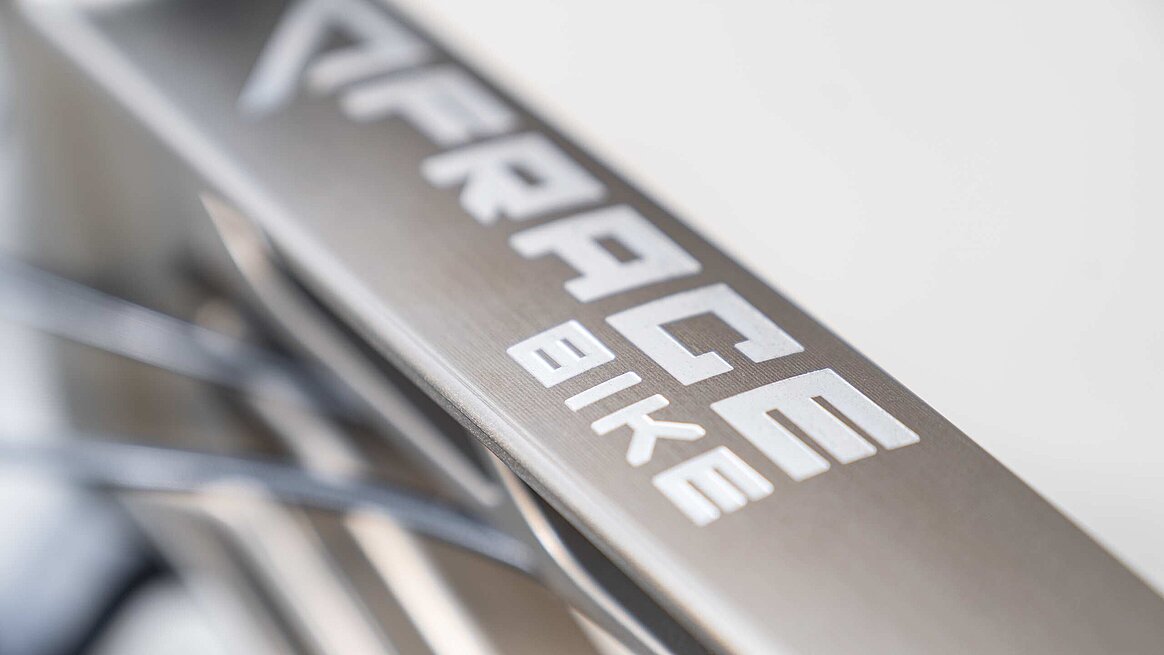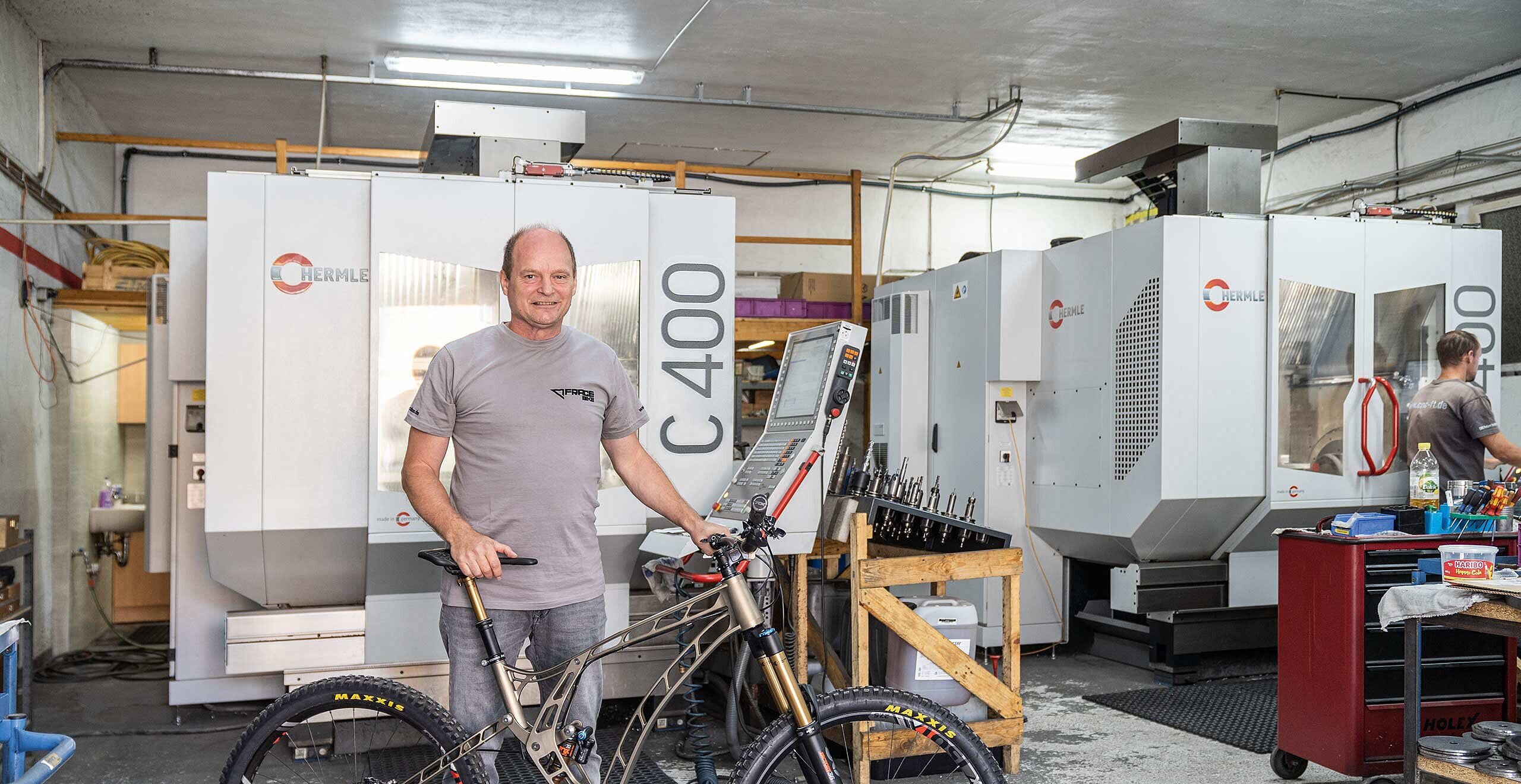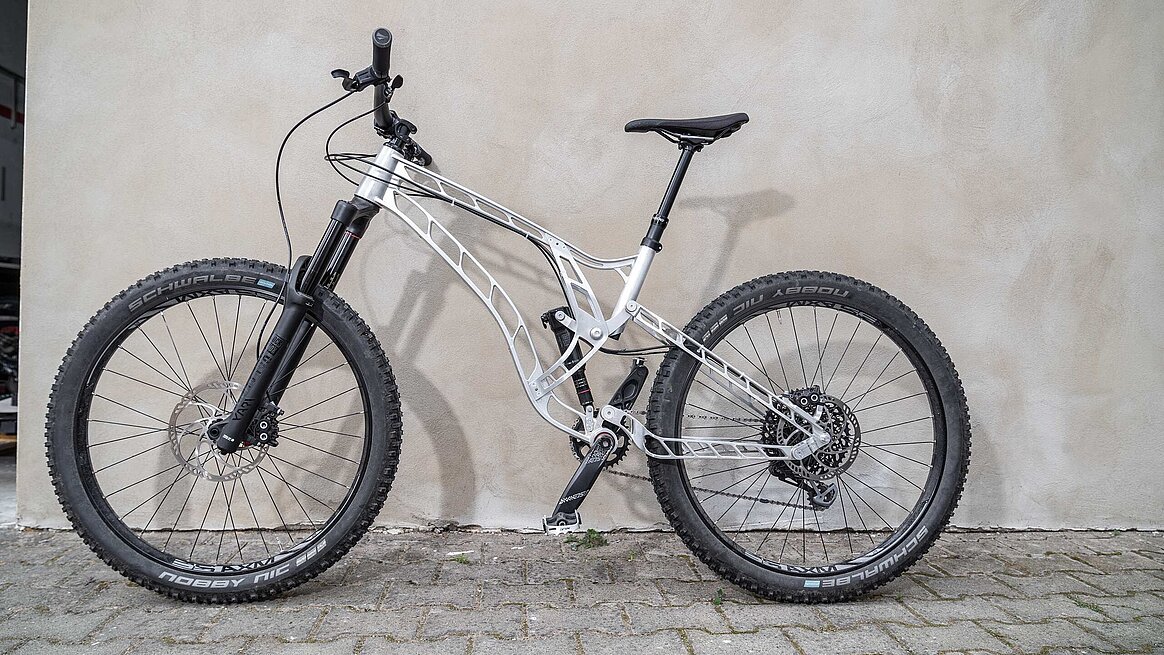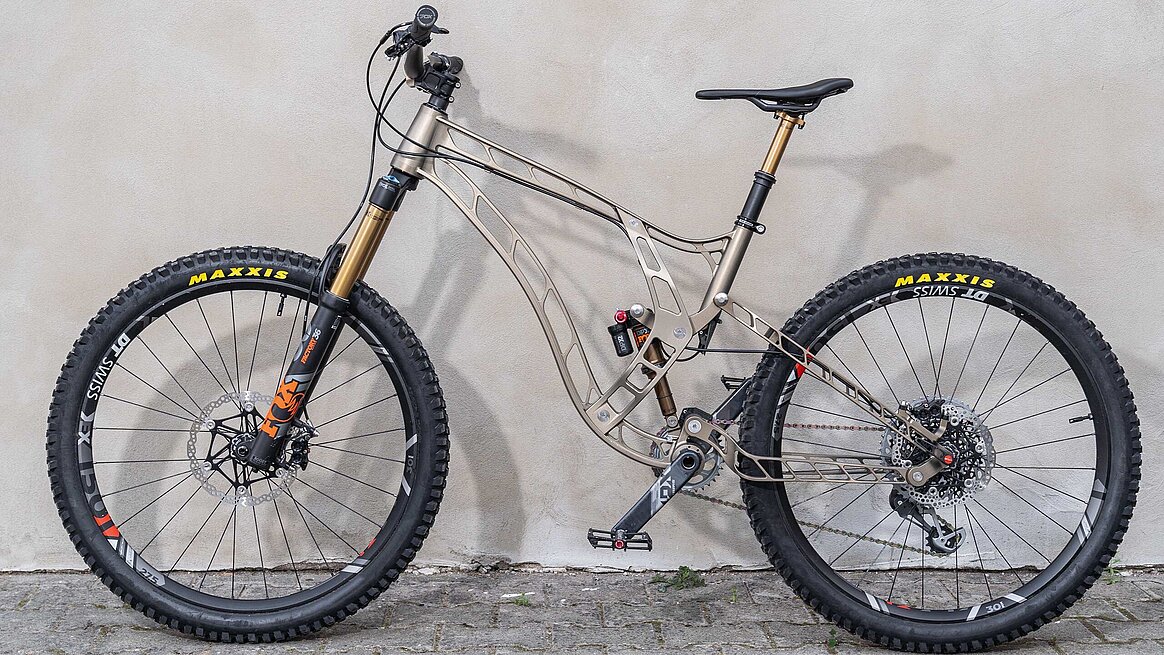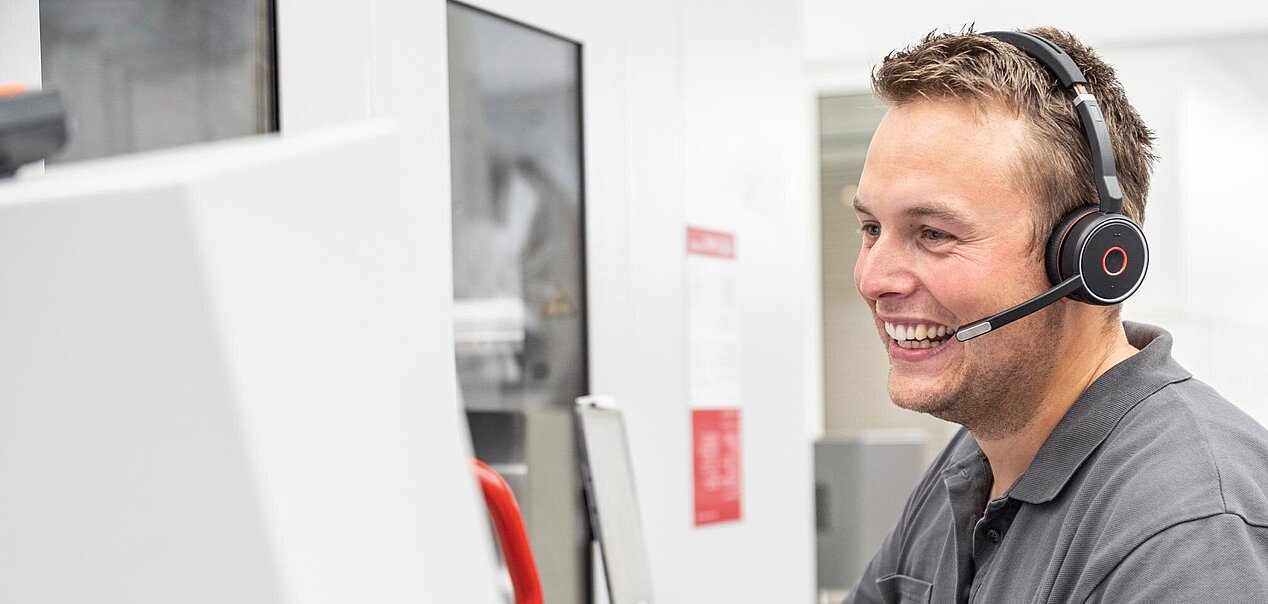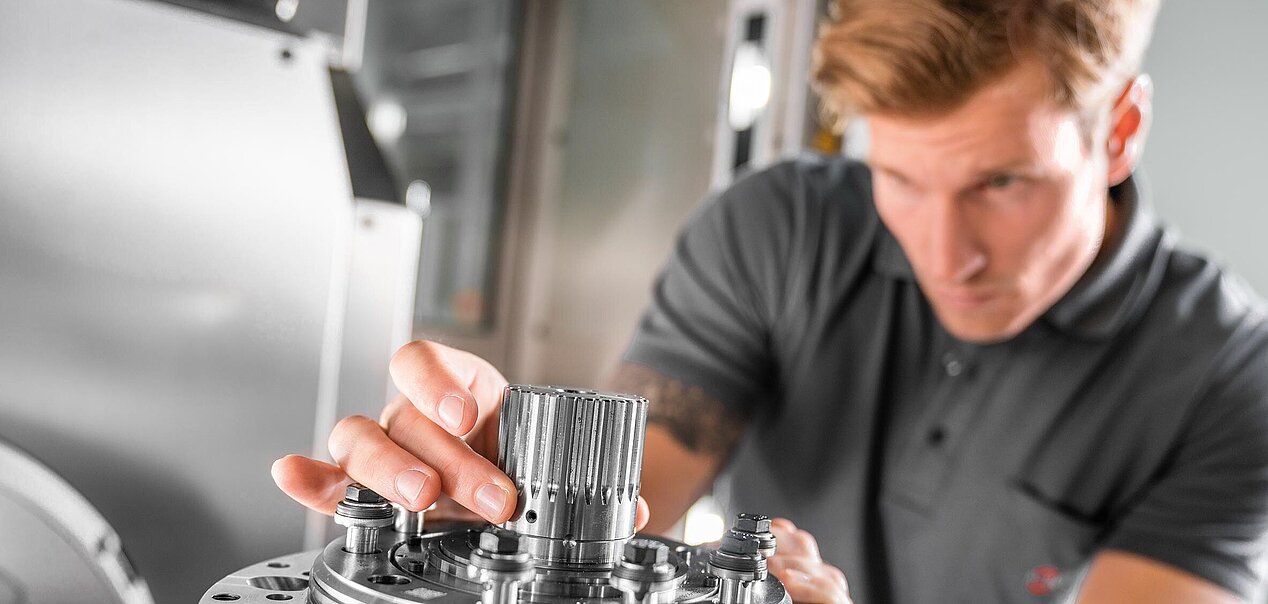C 400 | CNC Future Technics GmbH | Precision for cycling dreams
Bernd Iwanow follows his gut feeling. When he is sure of his idea, he programs it into NC code which his two Hermle machining centres precisely mill into the clamped aluminium blocks. The result: A bicycle called Fracebike, the sight of which is as unusual as the fact that Iwanow does not ride a bicycle himself.
The door of what used to be a bus garage hums busily as it rolls up. It reveals workbenches and roller carts laden with half-finished workpieces waiting for the next machining step: orders for jig and fixture makers from the automotive industry. In the background, the working areas of two 5-axis machining centres of Maschinenfabrik Berthold Hermle AG are lit up. The spindles of the C 400 U guide the cutters over the clamped components – fast, but with high precision. Cooling lubricant sprays, chips fly. Bernd Iwanow is proud of what he has built up in 14 years. His recipe sounds simple: "I am reliable." For him this means realistically calculating delivery dates and meeting them. If there is a hitch, he informs his customers in time. Not the price, but precision and punctuality are the decisive factors for his customers.
Many times during the time when he was an employee himself he was reminded: His own understanding of being a reliable partner is not shared by everyone. Machining processes were put off in favour of other orders, promised delivery dates were not adhered to. In 2004, Bernd Iwanow said to himself: "I can do that better," and that was when the idea of becoming self-employed was born. The decisive step came in 2006 with the founding of CNC Future Technics GmbH in Lossa, a village in Saxony-Anhalt about an hour's drive from Erfurt. The essential ingredients were: experience, know-how and a reliable machine pool.
He himself made sure that he gained the knowledge: Bernd Iwanow first stood in front of a CNC machine in 1995. Seven years later he started CAM programming and learned to develop strategies and procedures for various machining centres and to convert them into machine commands. He is still using that program to this day. In 2004 he moved on to another company and gained experience as a production manager. "Things didn't quite go as I had hoped," explains Iwanow. That speeded up his planning.
It all began with Emelie
He had his first encounter with Hermle at Metav 2005, the trade fair for metalworking and manufacturing technology. After a visit to the Hermle stand he revised his plans to start up with a milling machine from another manufacturer. Iwanow can only put it this way: "The Hermle concept convinced me immediately." Another clincher was the contact with Hermle: Iwanow and Glenn Dieling, HPV Hermle Vertriebs GmbH, trained and worked in the same company – 37 years ago. "Back in 2004 that was a pleasant surprise when we found ourselves standing face to face in Hermle's exhibition centre in Kassel," recalls Dieling.
Towards the end of the year a C 40 U arrived. Iwanow made his début in contract manufacturing with his 'Emelie', as he called his first machine. In 2016 and 2017, he renewed his machinery and invested in two C 400 Us. Today, he and his seven employees machine individual parts and small series of up to 20 pieces for jig and fixture makers and suppliers to the automotive industry. And a bicycle frame guaranteed to catch the eye, if the order situation permits.
The inspiration
Iwanow is happy to retell the story: In 2014, he was contacted by the Mitteldeutsche Fahrradwerke, MIFA for short. "At the time, MIFA was developing a new folding electric bike. My remit was to implement the safety mechanism for the folding function," recalls Iwanow. This was something quite new and intriguing that took him into unknown territory. The project foundered abruptly, though, when the bike manufacturer from Saxony-Anhalt went bankrupt. But the idea of making his own bicycle stayed with him. "I started researching into bikes with CNC-machined components and got a big surprise. I couldn't find a single manufacturer who had milled a frame in one piece, i.e. without welds or glued sections," relates Bernd Iwanow. He decided to build an Enduro mountain bike for trial riding that would grab people's attention.
70 kg of highly durable aluminium, 25 hours of machining time and three clamping operations are needed for the frame consisting of 8 individual milled parts and 15 titanium screws – also made by Iwanow himself. The Fracebike leaves behind a pile of chips weighing almost 64 kg before being anodized and assembled to become a genuine Enduro. He checks whether the construction delivers what the visuals promise in the laboratory and also using the finite element method. The result: One of the radii was designed too small, and the frame broke. After Iwanow made the required adjustment, the bike has withstood all endurance tests – both in the test rig as well as on the trail.
